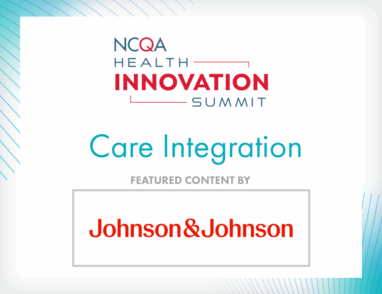Health Care Trends to Watch in 2025
January 8, 2025 · NCQA Communications
We asked NCQA leaders to share their thoughts on the biggest trends and opportunities in 2025. Here’s what they said.
Health Care Costs Continue to Rise
“One major trend we are watching is that premiums are going up again. Health care is eating up a lot of the social services spending at the state level, so we’re not in a position to throw more money into the system,” says Peggy O’Kane, NCQA’s founder and president. “That’s what I’ll be thinking about in 2025—trying to figure out how to start a serious conversation about getting better value for our health care dollars.”
Cost Sharing Causes People to Delay Needed Care
“Half the people in the U.S. identify cost as a barrier to care—and one of the unfortunate side effects is that people delay getting preventive care that could resolve problems before they become serious,” says Eric Schneider, Executive Vice President of NCQA’s Quality Measurement and Research Group. “We’ve scared people away from the system by charging them high co-pays and deductibles, and we’ve added to the burden of debt for people with serious care needs.”
Value-Based Care Adoption Has Slowed
“While we’ve seen an uptick in value-based care, it seems to be leveling off,” says Schneider. “We need a renewed commitment from the federal government and other payers to implement value-based payment arrangements, and stronger partnerships between payers and practitioners to figure out how to deliver the best care at a reasonable price.”
Digital Quality Is Gaining Momentum
“There’s been a big investment in interoperability, starting with the HITECH Act and electronic health records and then creating standards for efficient data exchange throughout the health care system,” says Schneider. “The stage is set, but the actors haven’t come out and the play hasn’t started. In 2025, we’ll see those efforts pay off as digital quality takes center stage.”
Practitioners Need to Engage in Data Sharing
“Data sharing is complicated because of the ‘many-to-many’ problem—many health plans contracting with many practitioners and health delivery systems,” says O’Kane. “What we’re trying to do with digital quality is get the clinical data flowing so quality measures automatically populate as a practitioner delivers care, and the practitioner can see how they are doing.”
Specialists Can No Longer Operate in a Silo
“More than half of adults in the U.S. have at least one chronic condition, and a third have multiple chronic conditions, which means the role of specialty care is enlarging,” says O’Kane. “We have a measurement challenge when it comes to specialty care. If you measure performance of individual practitioners, you don’t see the full picture of what’s actually happening to the patient. We need to find ways to integrate primary care and specialty care to create a holistic view.”
Patient-Centered Outcomes Matter
“Health care has shifted from a more paternalistic approach, where the clinician is in control, to a system where people can take control of their own health,” says Schneider. “With that comes the expectation that what we measure also needs to change. We need to focus on person-centered outcomes and patient experiences to understand and evaluate quality and outcomes.”
NCQA Is Hopeful About the Future
“I’m hopeful because there are so many organizations taking what NCQA has done, improving on it and running with it in a bold direction,” says O’Kane. “We try to highlight those innovations because many people want to move forward, but don’t know where to start. I’ve been talking about quality since the early 1990s, so seeing these breakthroughs and new care models is really inspiring and heartening.”







